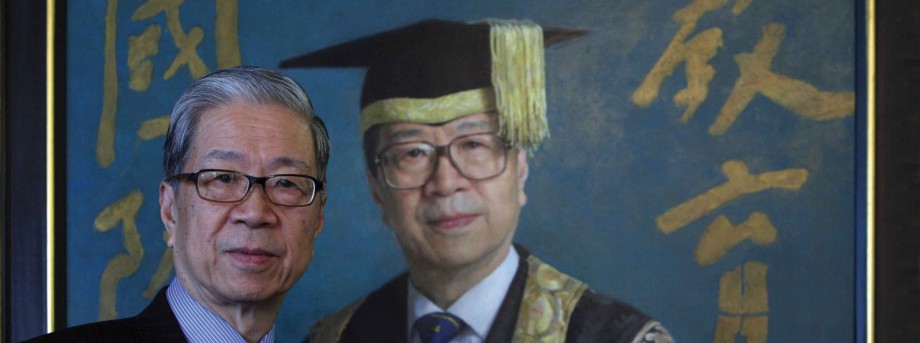
Chancellor steps down
January 21st, 2013
As The University of Nottingham’s outgoing Chancellor, Professor Yang Fujia, steps down after playing a pivotal role in the University’s international development over the last 12 years, his determination to make world-class education accessible and a life-changing experience shows no sign of abating.
A leading advocate of a global approach to education, Professor Yang was the first Chinese academic to be appointed Chancellor of a British university, but his credentials and vision made him the perfect choice for the job.
And as his successor, Sir Andrew Witty, prepares to become the University’s seventh Chancellor in 2013, Professor Yang’s strong relationship with Nottingham continues in his presidency of the Ningbo campus, which he helped establish with former Vice-Chancellor, Professor Sir Colin Campbell, in 2004.
It was a shared belief in lifelong learning and global education which put him in contact with Sir Colin and helped pave the way for his involvement in the development of The University of Nottingham.
“Colin Campbell wanted to expand the University’s influence and had the vision to see further,” Professor Yang explained. “Lots of people in China know The University of Nottingham, so Colin’s goal has been achieved.”
Professor Yang’s first visit to the University was far from low-key, as he had been chosen by the Chinese Ministry of Education to lead a delegation of China’s University Presidents to the Nottingham campus. It was to be the first of several visits to the University before he was appointed Chancellor in 2001.
In 2003, he made in-roads into developing a joint venture between Nottingham and China — which would become The University of Nottingham Ningbo Campus (UNNC) — and, in the process, Nottingham became the first British university to establish a campus in China.
The Chancellor’s appointment at The University of Nottingham came two years after he stepped down as President at Shanghai-based Fudan University, one of China’s leading educational institutions, and from where he gained an undergraduate degree in physics and went on to become a professor in the same subject.
Professor Yang has always had an international outlook. In the early 1960s, he was one of only a handful of people to travel from China to western countries, after he secured a visiting professorship at The University of Copenhagen’s renowned Niels Bohr Institute, before going on to teach at universities in the US and Japan. He became a leading light in global education and an advisor to The University of Hong Kong and the Chinese government.
In a bid to better connect business and education, Professor Yang is interested in setting up a special economic zone around Ningbo, which already has the support of the Chinese government and is set to reap benefits for UNNC. He looks forward to building on his role as President but is candid about the challenges ahead.
“Without quality, we will lose all things and we must also have excellent people,” he said. “UNNC achieved a lot and grew very quickly, but we need to improve the ratio of teachers to students, to give our students a first-class perspective.
“We want every student to feel that The University of Nottingham has changed their life.”
And, as to Professor Yang’s successor, it is the vital interface between business and education which, he feels, makes Sir Andrew Witty the perfect candidate for the role. As Chief Executive of pharmaceuticals giant GlaxoSmithKline, and an economics alumnus of the University, he thinks Sir Andrew will bring the “right emphasis” of business and education, particularly in the context of reduced government funding in higher education.
Fittingly, in December ,The University of Nottingham paid tribute to the outgoing Chancellor’s contribution by renaming the Jubilee Campus’s International House in his honour, ensuring that the YANG Fujia Building will remind generations of students to come of the man who helped enhance the University as a global institution.
Leave a Reply
Other News

Major road resurfacing works: Monday 22 – Friday 26 April
A number of diversion routes will be in place from Monday 22 – Friday 26 April […]

Call for staff helpers – Undergraduate open days
The university is looking for staff volunteers to help at university open days on Friday 28 […]

